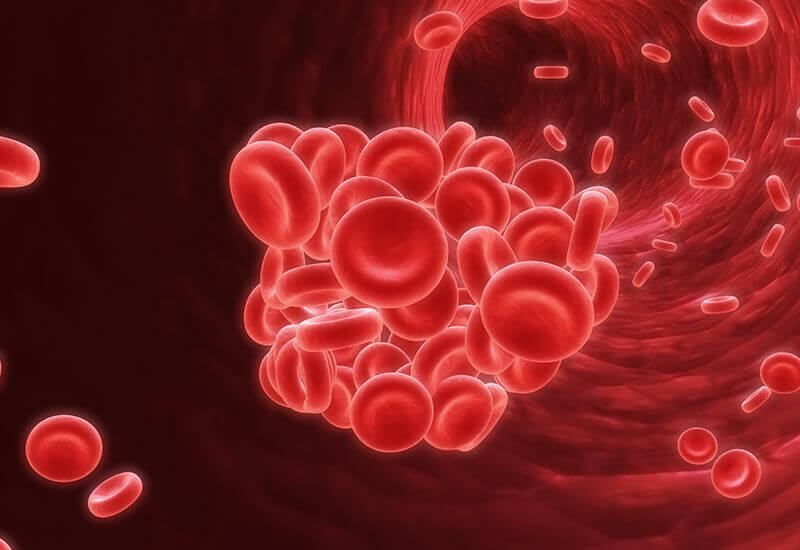Cardiovascular Disease Risk Factor (Apolipoprotein E) Genetic Test
$195.00
The cardiovascular disease APOE DNA test identifies an individual’s APOE aleles (e2/e2, e2/e3, e2/e4, e3/e3, e3/e4, e4/e4) and indicates whether or not there is an increased risk of elevated LDL-cholesterol and triglycerides, hyperlipoproteinemia type III, cardiovascular disease and diabetes.
Description
What are Cardiovascular Diseases?
Cardiovascular diseases include many heart and blood vessel problems. Often cardiovascular problems are due to atherosclerosis, which is when fatty substances build up in blood vessels resulting in the formation of plaques. These plaques can narrow or block the blood vessel leading to reduced blood flow to certain tissues. If this occurs in an extremity, severe pain and cramping occurs in the affected area. If this occurs in the brain, a stroke occurs. If this occurs in the heart tissue, a heart attack can occur. Other types of cardiovascular disease include heart failure (when the heart is not pumping enough blood around the body), arrhythmia (abnormal heart beat) and stenosis (when heart valves do not function correctly).
TURNAROUND TIME
SAMPLE TYPE
AGE REQUIREMENT
GENDER
Test Details
What causes Cardiovascular Diseases?
When an individual has too much LDL-cholesterol (“bad” cholesterol) in the bloodstream, it accumulates as fatty deposits, and stimulates extra cell growth within the blood vessels, leading to atherosclerotic plaques. There are many genetic and environmental factors that can contribute to elevated LDL-cholesterol levels. Genetic variants of the APOE, LDLR, APOB and PCSK9 genes are all linked to an increased risk of elevated LDL-cholesterol and cardiovascular disease. Other factors that can affect LDL-cholesterol levels include gender (males generally have higher levels), age (older people have higher levels), excess alcohol consumption, high fat diet, low physical activity and obesity. Variations in the APOE gene are also linked to an increased risk of hyperlipoproteinemia type III. This disorder results in the diminished metabolism of cholesterol and triglycerides in the blood, leading to cardiovascular problems.
How is APOE involved in Cardiovascular Disease?
The APOE gene encodes Apolipoprotein E, a protein involved in the production, delivery and utlization of cholesterol in the body. The APOE gene is located on chromosome 19. There are three common forms or alleles of APOE – e2, e3 and e4. One allele is inherited from each parent, resulting in six possible combinations: e2/e2, e3/e3, e4/e4, e2/e3, e2/e4 or e3/e4. The e3 allele is the most common allele worldwide and is viewed as the neutral allele, with no increased or decreased risk of cardiovascular disease. The e4 allele is associated with an increased risk of elevated LDL-cholesterol and cardiovascular disease. The e2 allele does not increase the risk of elevated LDL-cholesterol. However, there is an increased risk of hyperlipoproteinemia type III in individuals with the e2/e2 genotype.
How does APOE Genotype Influence the Response to Diet and Statins?
Different versions of the APOE gene also affect how a person responds to diet and statins (cholesterol-lowering drugs). Individuals with the e3/e3 and e2/e3 genotypes are likely to respond well to statins. The e2/e2 genotype is also associated with a good reponse to statins, and a low sugar/low carbohydrate diet is also recommended. Individuals at a higher risk of elevated LDL-cholesterol (genotypes e3/e4 and e4/e4) do not responsd efficiently to statins. Instead a low-fat diet is recommended for these individuals to effectively lower LDL-cholesterol levels before cardiovascular problems occur.
DNA testing for APOE
A simple DNA test can be completed to determine which alleles of APOE a person has inherited. The three alleles are e2, e3 and e4. Each person can inherit two identical alleles or two different alleles of APOE.
- e2/e2 – This genotype is associated with lower LDL-cholesterol levels but an increased risk for hyperlipoproteinemia type III. A person with this genotype will respond well to statins.
- e2/e3 – This genotype is not associated with an increased risk of elevated LDL-cholesterol. A person with this genotype will respond well to statins.
- e3/e3 – This genotype is not associated with an increased risk of elevated LDL-cholesterol. A person with this genotype will respond well to statins.
- e3/e4 or e4/e4 – These genotypes are associated with an increased risk of cardiovascular disease, due to elevated LDL-cholesterol levels. People with these genotypes do not respond well to statins but will benefit from a low fat diet.
- e2/e4 – This rare genotype has been the least well studied and results have been conflicting. Some studies indicate that it is associated with an increased risk of elevated LDL-cholesterol levels (due to the presence of the e4 allele). However, other studies indicate that it is associated with a similar neutral phenotype to the e3/e3 genotype.
Recommended Links:
-
Thompson GR, O’Neill F, Seed M (2002). Why some patients respond poorly to statins and how this might be remedied. European Heart Journal. 23: 200–206.
-
Wilson PWF, Schaefer EJ, Larson MG, Ordovas JM (1996). Apolipoprotein E Alleles and Risk of Coronary Disease – A Meta-analysis. Arteriosclerosis, Thrombosis, and Vascular Biology.16: 1250-1255
-
Marrzoq LFA, Sharif FA, Abed AA (2011). Relationship between ApoE gene polymorphism and coronary heart disease in Gaza Strip. Journal of Cardiovascular Disease Research. 2(1): 29-35.
-
Ballantyne CM et al. (2000). Apolipoprotein E Genotypes and Response of Plasma Lipids and Progression–Regression of Coronary Atherosclerosis to Lipid-Lowering Drug Therapy. Journal of the American College of Cardiology. 36(5): 1572-1578.
-
Ordovas JM (1999). Micronutrient Group Symposium on ‘Dietary determinants of lipoprotein-mediated cardiovascular risk’. The genetics of serum lipid responsiveness to dietary interventions. Proceedings of the Nutrition Society. 58(1): 171-187.
-
Song Y, Stampfer MJ, Liu S (2004). Meta-Analysis: Apolipoprotein E Genotypes and Risk for Coronary Heart Disease. Ann Intern Med. 141(2): 137-147.
-
Minihane1 AM, Jofre-Monseny L, Olano-Martin E, Rimbach G (2007). Symposium on ‘Molecular basis for diseases’ ApoE genotype, cardiovascular risk and responsiveness to dietary fat manipulation. Proceedings of the Nutrition Society, 66: 183–197.
-
National Organization for Rare Disorders. Hyperlipoproteinemia Type III





